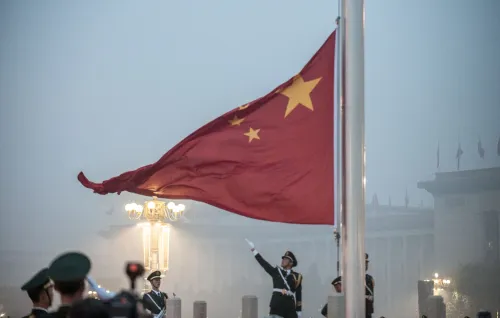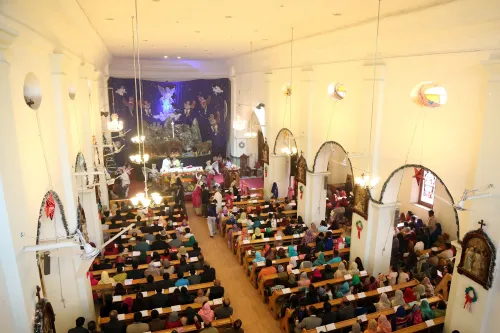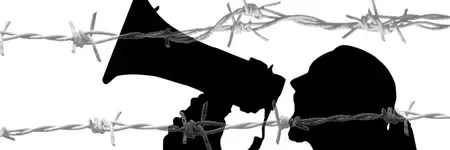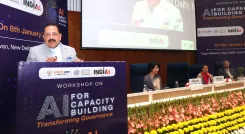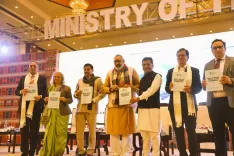Why is Pakistan Kissan Ittehad Opposing FIRs Against Farmers in Balochistan?
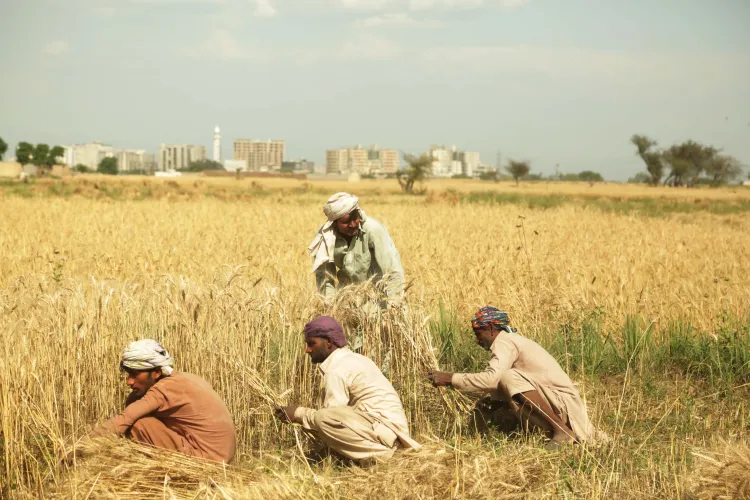
Synopsis
Key Takeaways
- Khalid Hussain Bathh condemns FIRs against farmers.
- Call for immediate withdrawal of cases and release of detainees.
- Demand for wheat support prices before the sowing season.
- Proposal for a committee to review solar power transition.
- Farmers face significant losses due to electricity disruptions.
Islamabad, Sep 21 (NationPress) - The Chairman of Pakistan Kissan Ittehad (KIP), Khalid Hussain Bathh, strongly criticized the recent filing of FIRs against farmers who were protesting peacefully in Nasirabad, a region in Balochistan. According to Bathh, these farmers were merely advocating for their rights, as reported by media outlets on Sunday.
During a press conference alongside Arya Hoorain and Raza Muhammad Khilji, Bathh demanded the immediate withdrawal of the cases against the farmers and the release of those who had been detained, as stated by Pakistan’s prominent daily, Dawn.
He cautioned, "If this situation is not addressed, KIP will begin protests in Kulchak, Nasirabad, Lakpass, Khuzdar, and other regions."
Bathh urged the federal and provincial governments to announce wheat support prices ahead of the sowing season, enabling farmers to cultivate more land. He also called for the Balochistan government to establish a committee with KIP representatives to evaluate the transition of tubewells to solar power and to scrutinize the funds already allocated.
"Until a committee is formed, farmers' electricity connections must remain intact," Bathh insisted. He held the provincial irrigation minister accountable for causing damages worth billions.
Regarding the challenges faced by farmers, he stated, "Paddy crops have withered, and vegetables have been devastated. The provincial irrigation minister's negligence and stubbornness have resulted in significant losses."
Earlier in August, Bathh had criticized the Balochistan government for failing to deliver promised funds for converting agricultural tube wells to solar energy in the Nasirabad division—the province's only green belt—as reported by Sunday media.
He revealed that due to non-operational tube wells, crops were withering, and farmers were incurring substantial financial losses from disrupted electricity supply, according to Dawn.
Authorities had pledged funds for aiding solarization for farmers, yet those funds remain unreleased. Electricity connections were severed, and supply was altered from three-phase to two-phase without prior payments.
Bathh emphasized that the tube wells were inactive, with no water flowing in the Rabi Canal, adversely affecting agriculture, livestock, and local communities due to electricity supply disruptions.
He noted, "Crops have perished due to the lack of irrigation water, and there is even a shortage of drinking water." After assurances from Balochistan Irrigation Minister, Mir Muhammad Sadiq Umrani, farmers had sown their seeds, but those seeds were destroyed due to insufficient water.
Bathh lamented, "There have been no developmental initiatives like skill development centers or workshops for women farmers, who contribute equally in the fields."
He requested the government to implement a solar energy program for farmers in the Rabi Canal, Nari, and Bolan areas, who currently rely on diesel generators for irrigation.


